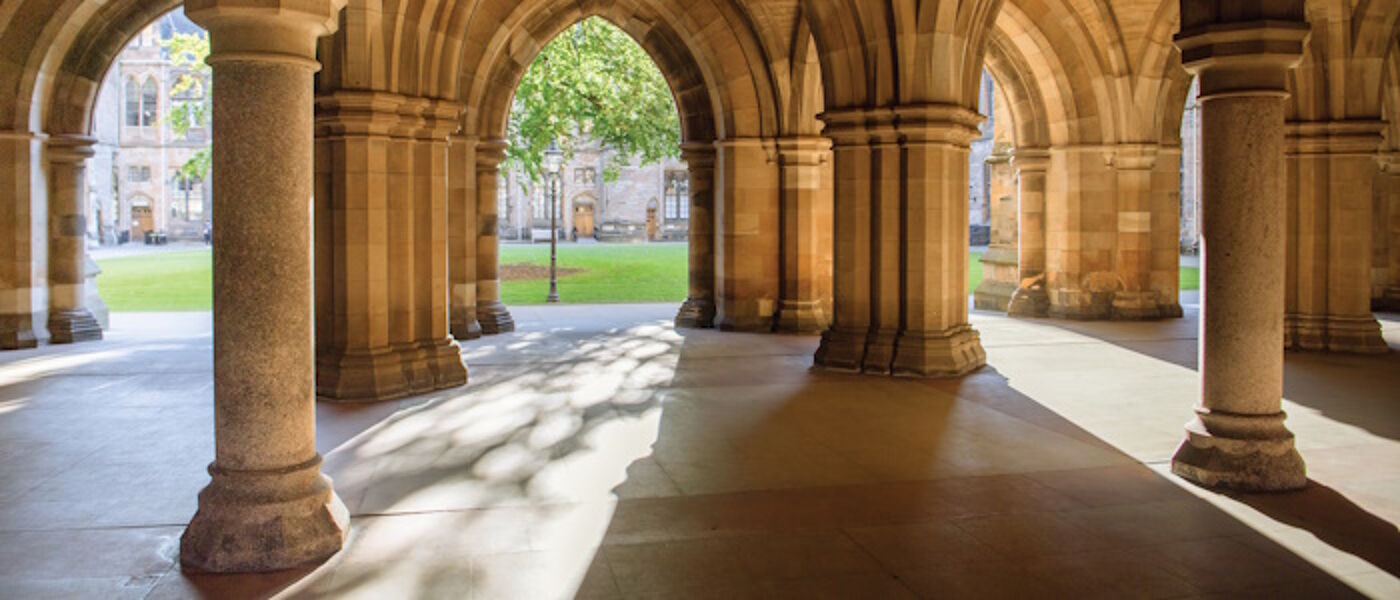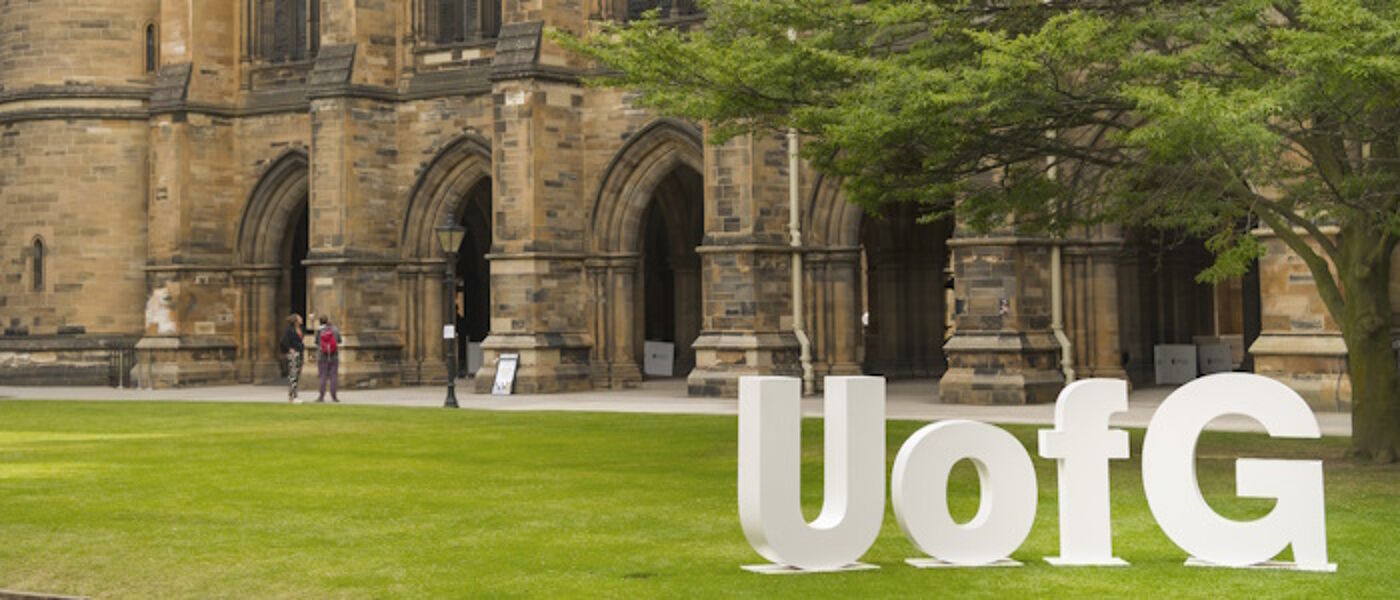Information for applicants
About our degree programmes
Computing Science and Software Engineering are young and exciting disciplines which are rapidly evolving. They include, amongst other things, theoretical studies of algorithms, experimental investigations in areas ranging from human-computer interaction to network performance, and practical engineering challenges in designing and implementing efficient, reliable software to meet specifications.
Our programmes have consistently been designed to teach fundamental principles of computation and computing systems (e.g. modelling and abstraction, problem-solving, analysis of algorithms, etc), principles that are likely to endure. At the same time, our students gain experience of state-of-the-art computing technologies through practical and project work, and placements where available; but, more importantly, you learn how to adapt to the rapid rate of technological change. In essence, we will teach you how to learn, relearn and be flexible enough to adapt to individual environments within different organisations. We nurture lifelong learners, teach general principles, and use a range of systems and tools as a medium to achieve this, rather than putting our primary focus on training you to use a specific tool or technology.
As a graduate with a degree in our discipline, you are highly employable and can look forward to well-paid careers designing and building the digital technologies that underpin the global economy and, indeed, every aspect of human activity from healthcare through music to making the natural environment sustainable.
The first year of our programme is designed to offer students who are new to the area an opportunity to explore and develop their potential. This is especially true of programming, a strong unifying strand throughout all our degree programmes. There are two routes in first year: one for students with prior programming experience and one for those without.
Our School is rated one of the top Computing Science schools in the UK for research and is top in Scotland for research impact. Courses are designed and taught by researchers who are leaders in their fields.
We also have strong links with industry. Our degree programmes provide breadth, depth and personal development to create skilled, confident and successful professionals who are highly regarded in the world of work.
Undergraduate degree pathways
We offer single honours four-year BSc (Hons) and five-year MSci programmes in Computing Science and Software Engineering with advanced entry available for exceptionally qualified entrants onto our faster route three and four-year variants. Such faster route study is only available to you if you meet the higher admission tariff and have undertaken a prior Computing qualification. If you are admitted onto one of our faster route programmes, you are expected to be familiar with fundamental programming concepts delivered in Level 1 of the curriculum, and are required to take an additional 10-credit Level 2 course on Computing Fundamentals to ensure that important earlier content is covered. If you are interested in pursuing a faster route programme, and meet the higher admission tariff, please note that the 70-credit curriculum for the first year of the faster route programme would preclude you from taking a second subject. In effect, this would remove any flexibility to subsequently change to a different major.
The five-year MSci degree in Software Engineering is also offered with the option of a full-year placement. In this case, the students spend the fourth year of their studies working at a software provider, applying everything they have learnt so far in a real setting.
The Joint Honours degree in Electronic & Software Engineering (ESE) is offered as a BSc (Hons), BEng (Hons) or MEng. Combined Honours degrees are available in a range of subjects as BSc (Hons), MA(Hons) and MA (Soc Sci) (Hons). After level 2, students normally commit to one of Single, Combined or Joint Honours. All pathways also offer non-honours designated degrees after 3 years.
View a diagrammatic representation of our undergraduate degree pathways.
Combined degrees
You can also study for a combined honours degree, combining Computing Science with another subject. BSc (Combined Honours) degrees can be taken by combining Computing Science with Business & Management, Geography, Mathematics, Physics, Psychology, and Statistics. Other combinations are available as MA and MA (Soc Sci) degrees in the Colleges of Arts & Humanities and Social Sciences.
Excellence scholarships for international students
Our School aims to attract academically talented students from around the world to study on any of our undergraduate faster route programmes.
Guaranteed faster route international excellence scholarships of £5,000 per annum are available to international candidates who meet the published entry thresholds for acceptance onto one of our faster route programmes in Computing Science and Software Engineering. Separate application for this scholarship is not required. Excludes applicants who articulate through Glasgow International College.
Eligibility:
To be eligible, applicants must
- be classed as international for fee purposes
- hold a conditional or unconditional offer for a single honours or integrated Masters faster route programme in Computing Science or Software Engineering.
Professional accreditation
- Our UK campus, UG taught Programmes are accredited by the British Computer Society
- Honours Graduates can become full Chartered IT Professionals (CITP)
- Honours Graduates can become partial Chartered Engineers (CEng)
- MSci graduates are eligible for full CITP and full Chartered Engineers (CEng), BCS-only
- Honours degrees hold the Euro-Inf Bachelor Quality label
- MSci degrees hold the Euro-Inf Master Quality Label
Single and joint honours undergraduate accreditation
Our single honours graduates in Computing Science (including associated specialisms) and Software Engineering, and joint honours graduates in Electronic & Software Engineering are recognised by the British Computer Society (BCS), The Chartered Institute for IT, for the purposes of fully meeting the academic requirement for registration as a Chartered IT Professional (CITP). Honours graduates are recognised by the BCS and the Institution of Engineering & Technology (IET) for partially meeting the requirement for a Chartered Engineer (CEng).
Integrated Masters programmes
MSci graduates of our integrated Masters programmes in Computing Science and Software Engineering are recognised by the British Computer Society (BCS), The Chartered Institute for IT, for the purposes of fully meeting the academic requirement for registration as a Chartered IT Professional (CITP) and Chartered Engineer (CEng).
 |
 |
|
Frequently asked questions
- What programming language(s) will I learn?
- Is it possible to transfer into the second year of your degree programme?
- Does your School support Erasmus exchanges?
- Does your School support International exchanges?
- What level of English proficiency is required for studying in the School of Computing Science?
What programming language(s) will I learn?
- In level 1 you will learn to program in Python, a popular modern multi-purpose language.
- In level 2, we teach you how to program using Java. The focus in level 2 is on object-oriented programming techniques. We also introduce web-based development with Javascript and related technology.
- In level 3, you will learn the C programming language and, perhaps, another programming language via your team project. By the end of level 3, you should be able to pick up a new programming language that you haven't seen before and become sufficiently skilled to be a productive user of it in a couple of weeks.
- In levels 4 and 5, you will use a variety of programming languages in your elective course and in your individual project. Amongst the languages you might use are Haskell, C#, C++, Objective C, and Smalltalk.
Is it possible to transfer into the second year of your degree programme?
- Highly qualified candidates, who have an A in Computing or equivalent at Higher or A Level, can apply for direct entry into second year or into a special level 2 "Faster Route" program. Normally, direct entry requires an HND in Computing or equivalent. The "Faster Route" route is designed for applicants direct from school with appropriate Higher, A-level or IB qualifications.
Does your School support Erasmus exchanges?
- Yes, we do. However, this is only available for a selected set of European universities. For more information please visit https://www.gla.ac.uk/schools/computing/international/studyabroad/. Also please don't hesitate to contact us for further information.
Does your School support International exchanges?
- Yes, we do. Going abroad can provide you with an exciting opportunity to see other parts of the world whilst studying for your degree. For more information please visit our Study Abroad and Exchange pages. For further information, please don't hesitate to contact us.
What level of English proficiency is required for studying in the School of Computing Science?
- Proficiency in English is a pre-requisite. For applicants whose first language is not English, the University sets a minimum English language proficiency level: this can be found in the Entry requirements tab of each of the programmes listed.

UG offer holders



